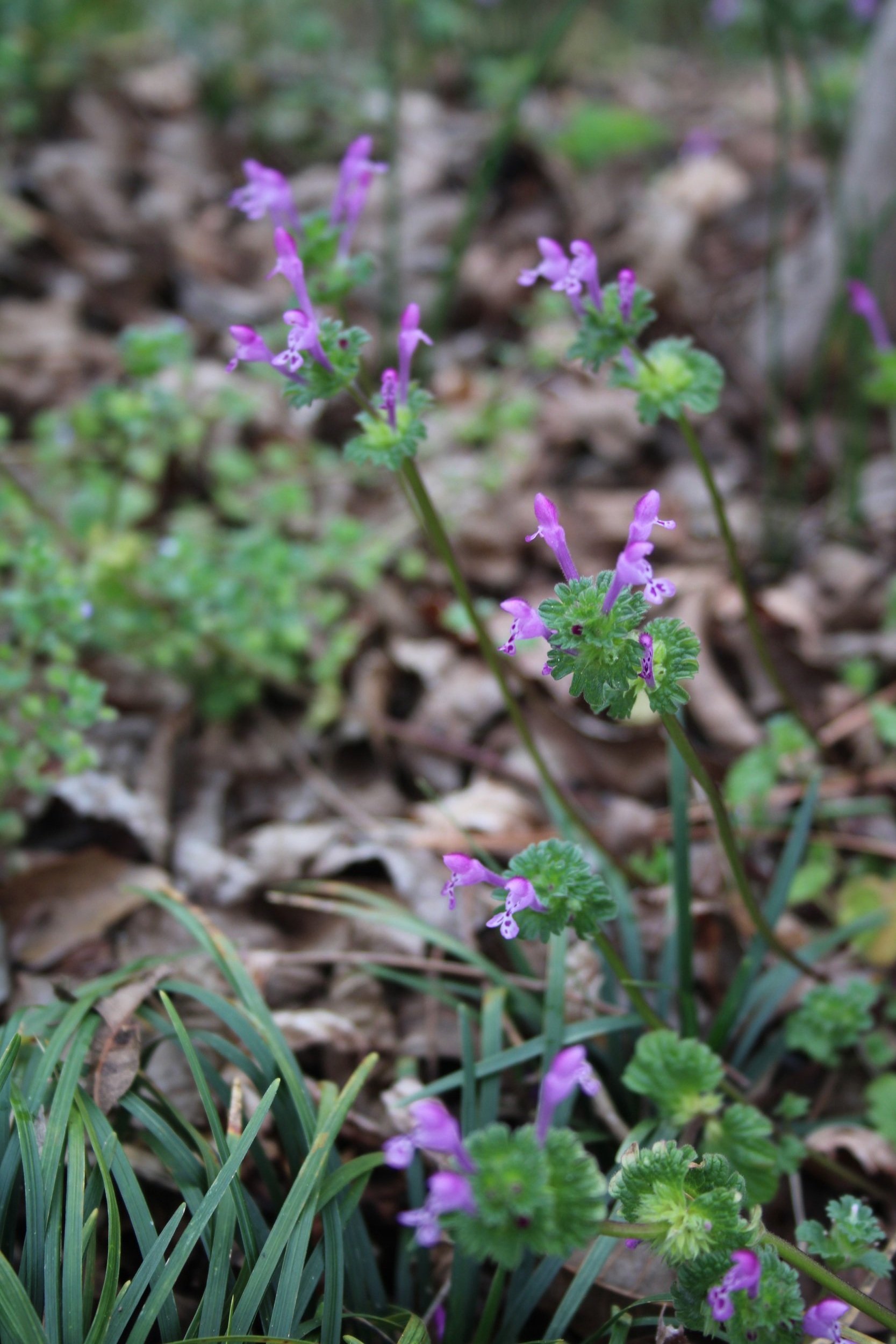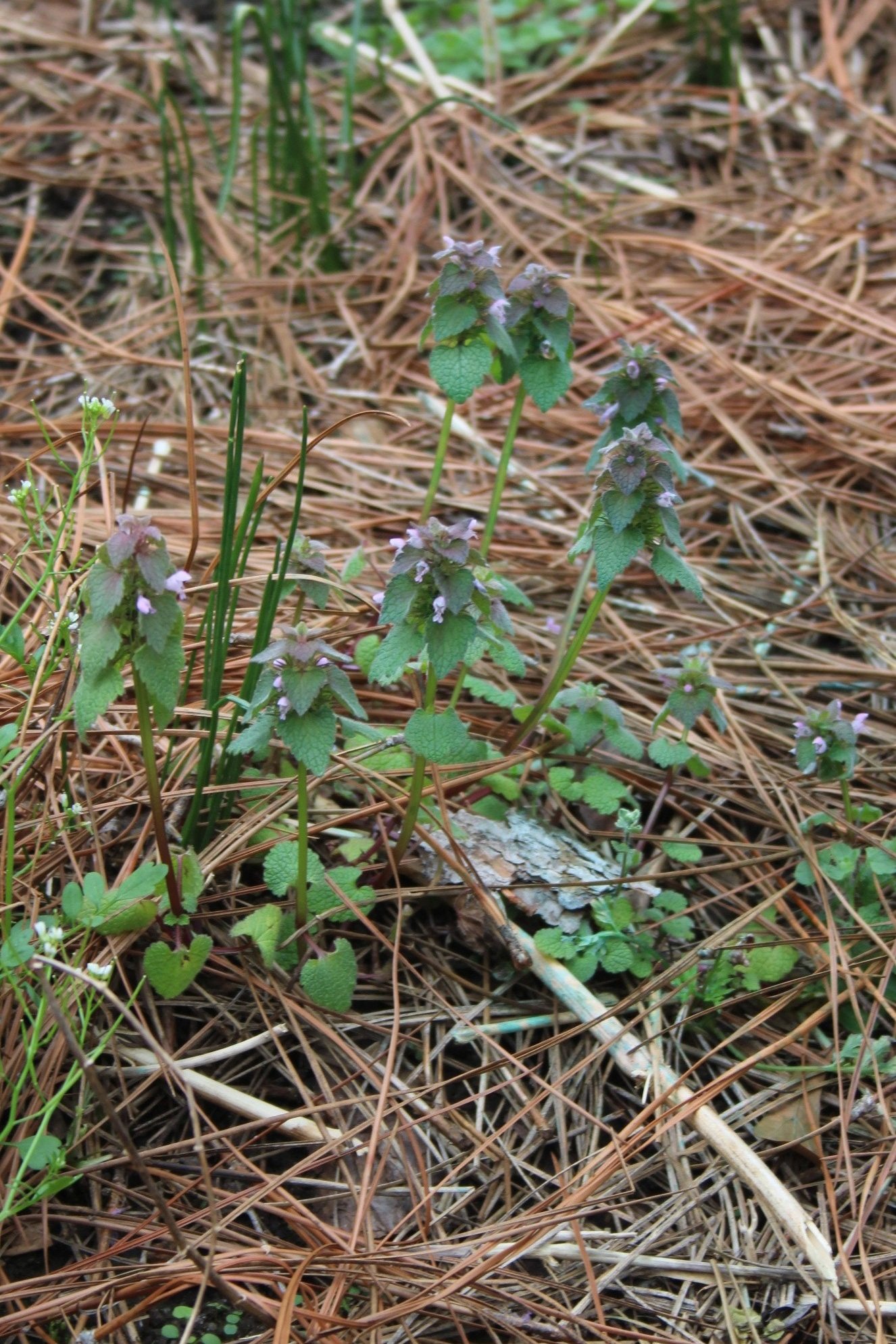The “purple haze” across lawns and roadsides right now is unrelated to Jimi Hendrix. Instead, it is either Purple Deadnettle or Henbit or both. These weeds are common in the southeast, and can be found growing together. They spread readily and plague homeowners who want a pristine lawn. As a child, I loved the purple flowers with tiny freckles, and gathered many a tiny bouquet as a gift to my tolerant mother.
A close look reveals the differences between the two. Purple Deadnettle (Lamium purpureum) has heart-shaped leaves, slightly hairy, that attach to the stem with a stalk. The topmost leaves have a purple cast. Henbit (Lamium amplexicaule) has rounded leaves with scalloped edges that wrap around the stem. Leaves are uniformly green, and attach directly to the stem without a stalk. Stems are square for both, indicating they are members of the mint family.
These two weeds are not native, but a Eurasian import that has made itself right at home here in the US. While I pull them from my flower beds and borders, I leave those in lawn areas alone. Deadnettle prefers more sun than Henbit, which prefers shade to partial shade. They appear in all soil types.
Deadnettle and Henbit are reported to be edible. (In this case “edible” means non-toxic and does not equate to “palatable.”) Chickens enjoy eating both flowers and foliage. The blooms provide nectar to honeybees when few other flowers are available, and are also popular with hummingbirds, although peak Henbit season is past when our first hummingbirds appear here in upstate South Carolina. Both plants work well to control erosion (yay!) but set thousands of seeds, all of which seem to germinate (boo!). They can overtake a lawn.
Both prefer cool temperatures of late winter and early spring, and will gradually fade away once weather is consistently warm. Both plants are annual, so don’t waste time and money applying herbicides. If you don’t want them in your garden next year, apply anti-emergents in late summer or early fall when dormant seeds are starting to germinate. If you simply must rid yourself of these plants, use an herbicide labeled for broad-leaf weeds and follow the application instructions exactly.

